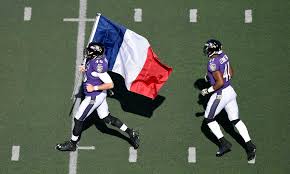This makes me squirm. It makes me angry. I wish I could say that I was NOT like most people in the so-called developed world, but I was. Bombs in a Beirut street, scores dead, families and communities devastated, made far less impact on me than did the subsequent massacre in Paris. Media attention? Sure, I could blame the media, but as somebody who’s allegedly a world citizen — a Canadian guy trying to learn how to see all human beings as I’d regard my own family — I was stung by the truth of what Mr. Fares wrote, as reported in a challenging New York Times article. Are lives in a context that I somehow feel is closer to mine, in a city where I’ve visited, worth more to me than west Asian ones? Searing question, dangerous times. Apparently, the sufferings of a divided and confused humanity will not be confined to “those parts of the world”…
“When my people died, no country bothered to light up its landmarks in the colors of their flag. When my people died, they did not send the world into mourning. Their death was but an irrelevant fleck along the international news cycle, something that happens in those parts of the world.”
Elie Fares is a young Lebanese doctor and writer. This is only a small piece of his thoughtful, angry, truthful observations in a November 14 blog post. He’s not demeaning the pain of Paris, but challenging its exclusivity.

Sheesh. Gotta love a little global consciousness in NFL stadia, right?. “French Lives Matter”, I guess, is better than if they *don’t*, but if even SportsCorp is doing it, there’s obviously something missing…

Moving to read about these two Lebanese heroes. [Ed. note: Mr. Miloff is referring to the previous blog post by Mr. Fares, in which he describes the largely unknown sacrifices of two men, one in Beirut and one in Tripoli, each of whom tackled a suicide bomber before he could get to the crowds he intended to take with him.] If you run across a fundraiser to assist their children, please let me know. I spoke today to a Lebanese friend and Abou Issa was not known to him.